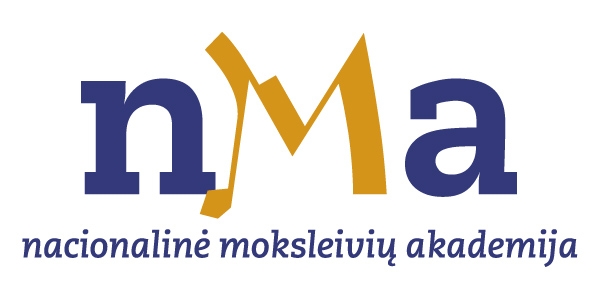Reaching out to students in Lithuania

There are two pieces of news. First, I recently gave an interview about myself to Jonas Jurgaitis, the founder of the informal biology training school ERUDITAS. The interview can be found here (in Lithuanian).
Second, this September I took up some new responsibilities. I volunteered to be the leader of the physics section in the additional training school Nacionalinė Moksleivių Akademija (National Student Academy) in Lithuania. NMA is an extracurricular school for gifted high-school children in Lithuania. It is composed of eight sections: biochemistry, chemistry, economics, physics, informatics, Lithuanian philology, mathematics, and music. Students with a particular interest in one of the subjects attend 5 and 10 day in-person winter and summer sessions. During the sessions, schoolchildren take subject lessons with expert teachers, university professors, or students. In addition, children have the chance to participate in a wide variety of personal development activities and evening events. During the periods between the sessions, pupils do distance-learning homework sets. One of the NMA goals is to reduce the education disparity in Lithuania and give gifted children of all backgrounds access to expert subject training.
I have a strong personal connection with the NMA because during 2005-2007 I was myself a student there. One of the pillars of NMA is a strong sense of community. For someone like me (coming from a non-academic background and not a major city in Lithuania) it was very important to meet other young people dedicated to their subject of interest. Many of them became my close friends and now I have a network of young professionals and academics rising in their careers. No less important was the chance to engage with university professors, superb teachers, and a large number of well-known public figures. I was very inspired by these famous and important people paying attention to us, schoolchildren.
Now, more than ten years after graduating from school, I find myself in the lucky position to be able to contribute back to the education in my home country. Currently, I am organizing the preparation of teaching material and homework problems for the students. Participation in physics competitions was a significant part of my physics training at school, but neat physics problems have little to do with my day-to-day research as a scientist. Therefore I hope to use my experience to inform school children about what recent physics problems scientists have solved (e.g. Higgs boson, black holes, Bose-Einstein condensate) and what puzzles are still waiting for their contribution (e.g. dark matter). I want to show them that the simple physics principles they study at school are the same tools used by scientists to solve the mysteries of the Universe.
Enjoy Reading This Article?
Here are some more articles you might like to read next: